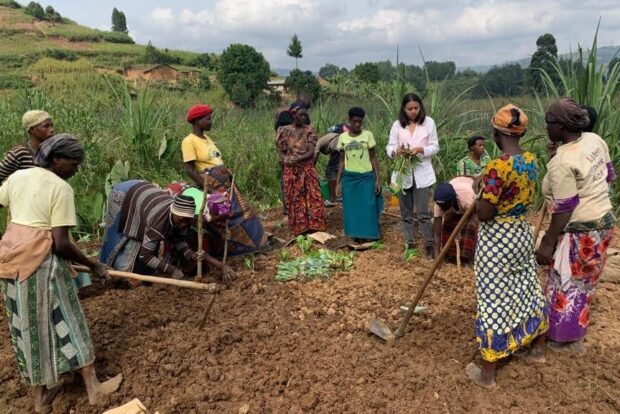A Perspective from Abroad
July 17, 2022 | Diana Guardado

“No problem can be solved from the same level of consciousness that created it,” ~ Albert Einstein.
The team at the Hope and Heal Fund recognizes the need to ascend into a new frame of thinking to solve gun violence. We have identified successful gun violence prevention and treatment strategies that focus on the power of conveying and building community-based capacity. To go above and beyond traditional prevention mechanisms, we are exploring cross-cultural conversations abroad.
I am currently based in Lake Bunyonyi, located in southwestern Uganda, as a racial equity and education researcher for the Global Livingston Institute (GLI). GLI is a community-based research institute that develops strategic partnerships with a focus on education and social impact. In partnership with the Hope and Heal Fund, I will be collecting and conducting a series of interviews with parents, teachers, and community leaders to construct community development approaches with an eye on equity.
The “Do Something” Mentality
When we witness a crisis situation or learn about a global dilemma, we are quick to react with a “do something” mentality. This notion creates an illusion that these thinkers have the ultimate answers, they know what is best for victims and survivors, and they eagerly insert their values and take charge of the situation. As a result, wounds seem to further deepen as the voices of residents, communities, and generations are overlooked as outsiders compromise local collaboration over self-driven reasons. This frame of thinking reacts to the situation. On the contrary, taking a step back from a crisis and growing passionately devoted to hearing directly from those impacted is emblematic of the equitable solutions partnerships should create.
Let’s Begin to Listen
When working on community development projects, there is a fixation on liberating people from the chains of suffering over creating “efficient and collaborative [approaches]” that are sustainable long term (Gumbie and Van Leeuwen). In the case of gun violence, many legislators and organizations are determined to solve a fixed problem in the span of two to three years. Legislation to impede and block certain gun purchases, the reallocation of funding, and the over-emphasis of mass shootings assume certain issues are the trigger points of this broader dilemma.
As I am trained to be a community-development leader, I have discovered a need to radically shift our methods to first build relationships with communities. In the relationship-building phase, we must open a safe space for individuals to speak about their lived experiences and day-to-day struggles. We should not enter these conversations with the intention to think of solutions. We should enter these conversations to listen. Listen from a diverse pool of perspectives. Listen as a collaborator. Listening attentively to the stories of communities and survivors of gun violence means entering a new frame of thinking. Only then will we ascend into a system of consensus and collaboration.
Diana spent the summer of 2021 as a social media intern with Hope and Heal Fund. This summer, Diana is in Uganda, working as a racial equity and education researcher for the Global Livingston Institute (GLI), a research institute that works on creating equitable and sustainable community development approaches. Diana is a rising senior at Menlo College studying Political Science and Public Policy with a minor in Equity and Justice Studies.
Citation
Gumbie, Rumbi Anne, and Jamie Van Leeuwen. “A Call for a More Efficient Platform for Funding and Advocacy in International Development.” Public Integrity, vol. 23, no. 4, 26 Apr. 2021, pp. 451–454.
